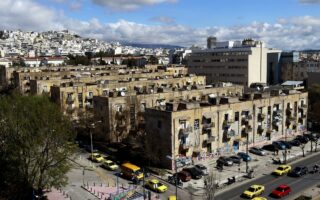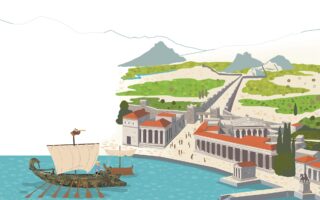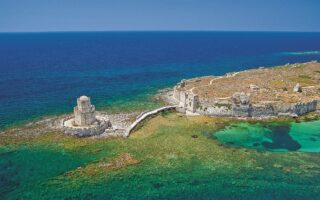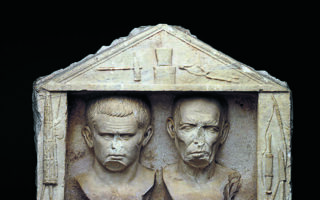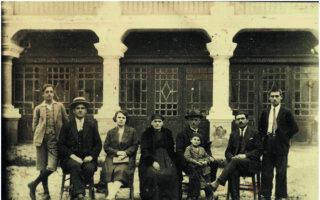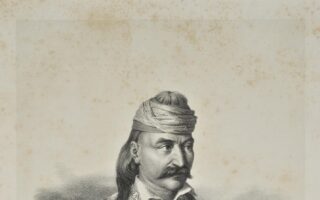The children (and men) of the Piraeus
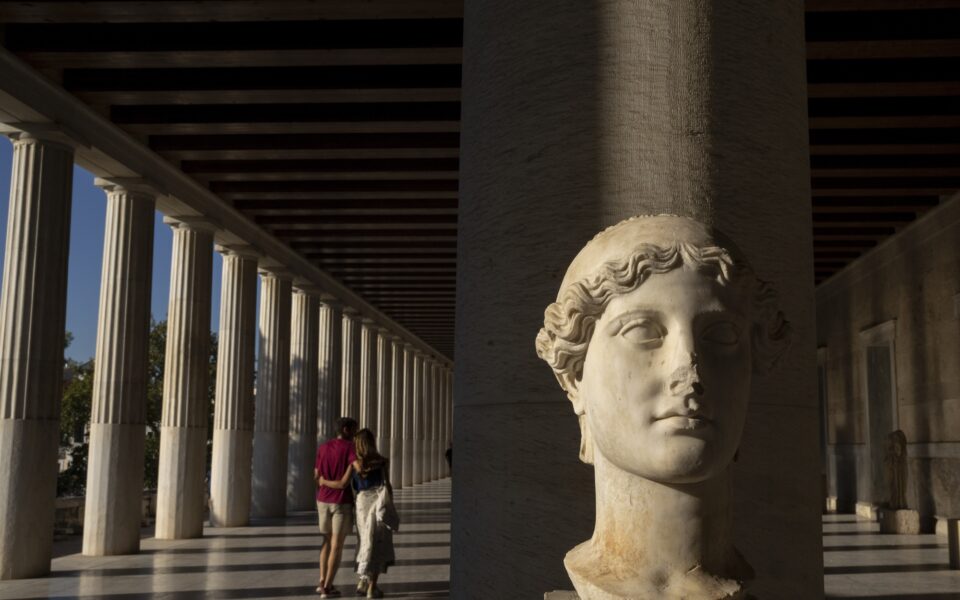
It is a great honor for me to be speaking tonight at the University of Piraeus. I have devoted much of my professional life to this beautiful and historic port city. Zea, which is the famous harbor next to the university, was, of course, the center of the ancient Athenian fleet. Tens of thousands of working-class Athenians served in this fleet and lived right here in the Piraeus.
For decades, I have sought to show that the classical Athenian dēmos (“people”) held these sailors in high regard. I have always tried to give as much dignity as possible to the non-elite citizens that ran Athenian democracy.
Kastella, which is the high hill close to the university, is a historic place for this famous dēmokratia. Called Mounukhia in ancient times, it was here that “the Men in the Piraeus” fought a historic battle. In 404 BC, a junta overthrew Athenian democracy and massacred thousands of fellow Athenians.
Within months, “the Men in the Piraeus” had had enough. They marched down from Kastella and defeated the junta of the Thirty and its Spartan backers in a major pitched battle. This unlikely victory of “the Men in the Piraeus” resulted in the restoration of Athenian democracy.
The modern history of this port city is no less important. Last year was the centenary of the Treaty of Lausanne. Turkey’s ethnic cleansing of Anatolia’s Christians was indeed a great katastrophē (“catastrophe”). Tens of thousands of these Christian refugees found shelter in the Piraeus.
Most of them did not speak Greek and so Turkish was for decades often heard in this port city’s streets. It is no great surprise to me that colleagues at the University of Piraeus study closely Greek-Turkish relations.
Although I am an ancient historian, it is a real pleasure to be talking tonight among political scientists. What unites ancient historians the world over and Greece’s political scientists is our strong belief that ancient Greece is “good to think with.” Studying ancient Greek history always results in new ideas for understanding our world today.
What also brings us together is a shared interest here in the warmaking of ancient democratic Athens. Currently the main project that I am undertaking in France is about this warmaking.
Of course, Classical Athens perfected participatory democracy. It was the leading cultural innovator of the Classical period. In Greece and around the world, we still stage ancient Athenian plays. Classical Athens is rightly famous for these political and cultural successes. Consequently they are widely known and thoroughly studied.
What is much less well known is the other side of this success story. This ancient Greek state completely transformed warfare and quickly became a superpower. The Athenian armed forces were unmatched in their size and professionalism.
Athenian democracy itself was a major reason for this remarkable military success. Democracy made ordinary Athenians believe that the state was now theirs. The result was that greater numbers of them were willing to fight and even to die in defense of their country.
The Classical Athenians believed themselves to be more courageous than all other Greeks. For them, the history of their ancient state was more or less a series of spectacular military victories
Democratic debate also tended to weed out bad proposals for wars. Such debate supported the efficient prosecution of those wars that were waged. It also taught soldiers to take the initiative in battle. Athenian democracy generally reduced corruption and encouraged ongoing military reform.
Remarkable as it was, the military success of Classical Athens is much less studied because it is not what this ancient state is famous for today. In fact, no complete book has yet been written on how the Classical Athenians waged their almost nonstop wars. My current project in France aims to fill this gap by studying all four branches of their armed forces. By comparing these branches for the first time, it is revealing the common practices that the dēmos used to manage their armed forces.
Of course, the three major activities of this ancient state were democratic politics, cultural and religious festivals, and wars. There is no doubt whatsoever which activity the Athenian dēmos considered to be the most important. For example, the Classical Athenians spent each year 39 tons of silver on their armed forces. This was 15 times more than what they spent on politics or festivals.
How the dēmos thought about themselves also reflected the high priority that they gave wars. The Classical Athenians believed themselves to be more courageous than all other Greeks. For them, the history of their ancient state was more or less a series of spectacular military victories.
This striking pro-war identity of the dēmos is evident in how they worshipped their city-protecting goddess. Athena was above all else the virgin warrior par excellence, who, after Zeus, was the best fighter among the gods, always leading them to victory. Paradoxically, the Athenian dēmos imagined themselves to be the children of Athena.
The most important festival that the Athenians staged for this goddess was called the Great Panathenaea. In this festival’s procession, soldiers and horsemen marched in their thousands. Thousands more carried weapons as offerings for Athena. Many sporting contests at the Great Panathenaea were about war. For example, there was a race for soldiers in armor and another race for warships.
In doing all this, the Athenians were claiming to be the children of a great warrior. Like their divine mother, they were the best warriors, who, with her help, would always be victorious.
It turns out that many of the common practices that the dēmos used to manage their armed forces were social ones. This means that understanding Athenian warmaking also requires a sound grasp of Athenian society. This is one reason why I am speaking tonight about the social structure of Classical Athens. This talk also shows how democracy allowed working-class Athenians to mold society in line with their personal interests.
Contemporary democracies still translate the general preferences of the majority into public policy. Greece has a national election in three weeks. It will be most interesting to see what preferences about society will carry the day.
David M. Pritchard, an Australian ancient historian, is a research fellow at the Nantes Institute for Advanced Study (France). These are excerpts from the talk that he is giving at the University of Piraeus on Tuesday night. Professor Pritchard will also be speaking at the French School at Athens on May 4 and the Australian Archaeological Institute at Athens on May 8.
